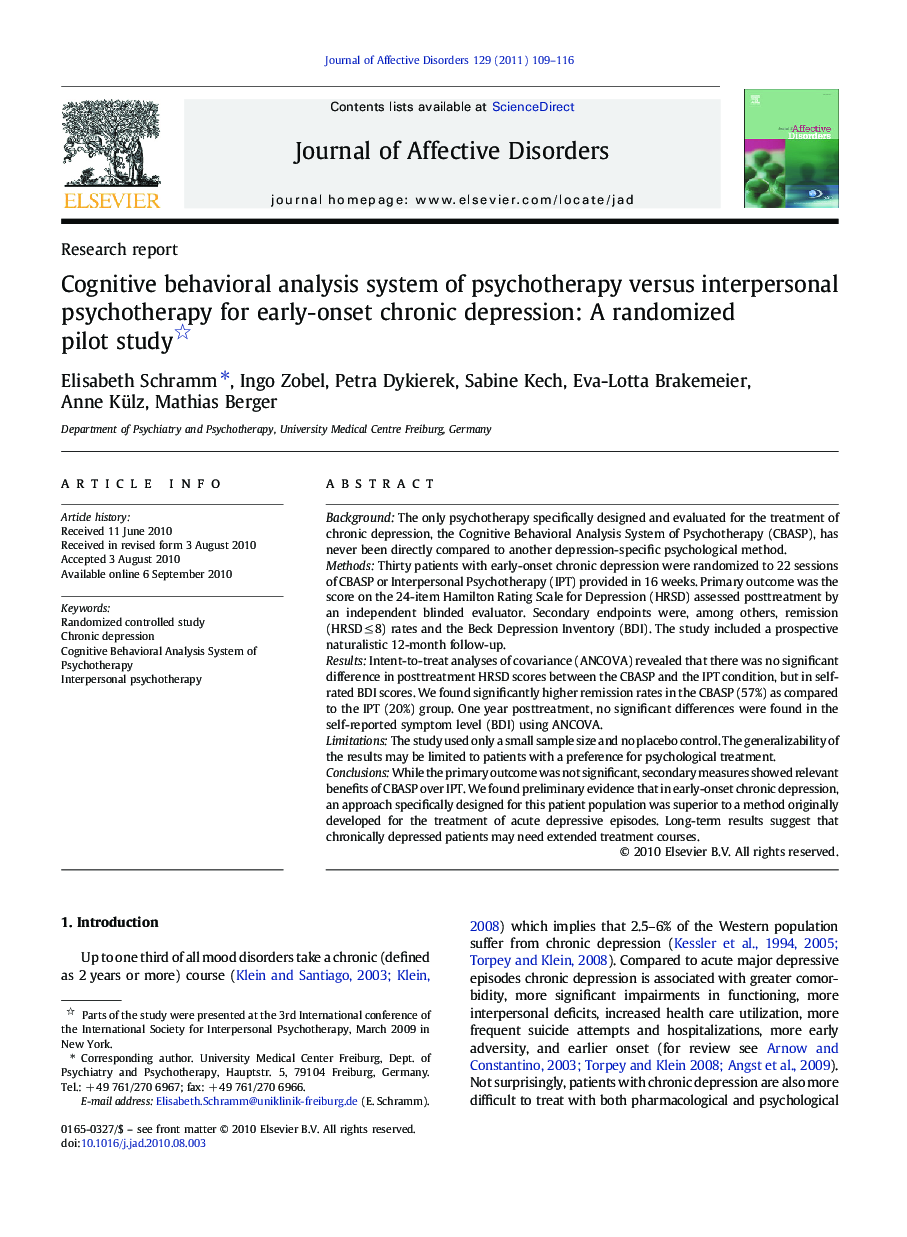| کد مقاله | کد نشریه | سال انتشار | مقاله انگلیسی | نسخه تمام متن |
|---|---|---|---|---|
| 4186514 | 1608191 | 2011 | 8 صفحه PDF | دانلود رایگان |

BackgroundThe only psychotherapy specifically designed and evaluated for the treatment of chronic depression, the Cognitive Behavioral Analysis System of Psychotherapy (CBASP), has never been directly compared to another depression-specific psychological method.MethodsThirty patients with early-onset chronic depression were randomized to 22 sessions of CBASP or Interpersonal Psychotherapy (IPT) provided in 16 weeks. Primary outcome was the score on the 24-item Hamilton Rating Scale for Depression (HRSD) assessed posttreatment by an independent blinded evaluator. Secondary endpoints were, among others, remission (HRSD ≤ 8) rates and the Beck Depression Inventory (BDI). The study included a prospective naturalistic 12-month follow-up.ResultsIntent-to-treat analyses of covariance (ANCOVA) revealed that there was no significant difference in posttreatment HRSD scores between the CBASP and the IPT condition, but in self-rated BDI scores. We found significantly higher remission rates in the CBASP (57%) as compared to the IPT (20%) group. One year posttreatment, no significant differences were found in the self-reported symptom level (BDI) using ANCOVA.LimitationsThe study used only a small sample size and no placebo control. The generalizability of the results may be limited to patients with a preference for psychological treatment.ConclusionsWhile the primary outcome was not significant, secondary measures showed relevant benefits of CBASP over IPT. We found preliminary evidence that in early-onset chronic depression, an approach specifically designed for this patient population was superior to a method originally developed for the treatment of acute depressive episodes. Long-term results suggest that chronically depressed patients may need extended treatment courses.
Journal: Journal of Affective Disorders - Volume 129, Issues 1–3, March 2011, Pages 109–116